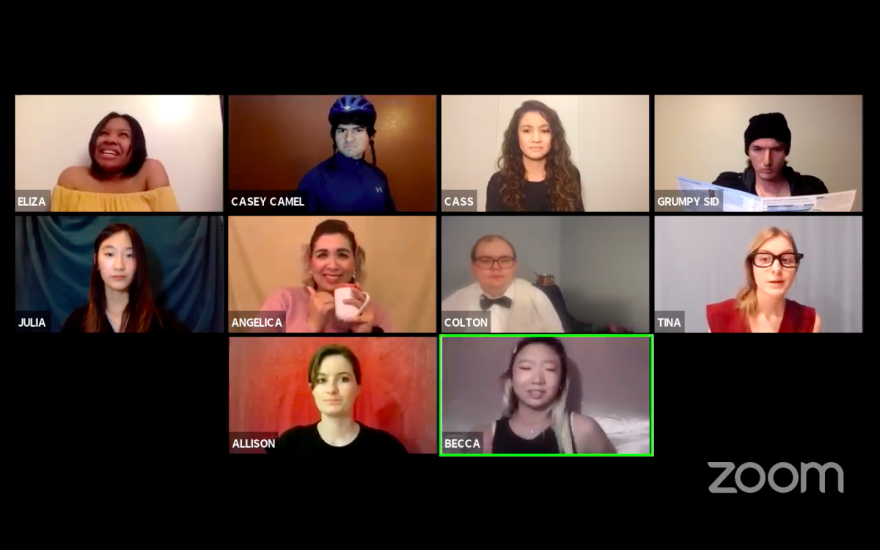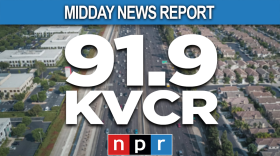The coronavirus pandemic may have upended the world of live theatre, but the Theatre Department at the University of California, Riverside has found a way around it. They created a hybrid play, film, and radio drama called “At the Pass” which will soon be turned into a podcast. KVCR’s Benjamin Purper spoke with some of the key players behind “At the Pass.”
Purper: We're here with Professor Stu Krieger, who wrote "At the Pass," Professor Bella Merlin, who directed "At the Pass," and UCR student Stephanie Padilla, the show's student assistant director. I'll start with Stu: how did the idea for this play come about?
Krieger: The whole reason "At the Pass" came into existence is in late 2017 we were in a faculty meeting and we always have to talk about our season, we do three main stage productions a year, in addition to a student-written film festival, play festival, and a graduate play festival. So, we're constantly in some form of production all year long. So we plan our season more than a year out, because especially with some of the established plays we have to worry about acquiring rights and making schedules and doing all that. So this was like I said in late 2017 there was a faculty meeting, we were talking about subsequent upcoming seasons and I made a comment, which is always "be careful what you wish for," where I said, in the long time I've been here since 2006, we've never done a contemporary comedy. And we're training actors that are eventually going to graduate our program and go out and audition in L.A. and they've never had practice doing contemporary comedy, I think it would be interesting to introduce that. The intention was, it was going to be our main stage spring play and then the pandemic hit and campus shut down and Bella said, you know, the show must go on. And she figured out a way we could do this, and that's how we got to starting to create what the virtual version was going to be.
Purper: Can you kind of speak to how that happened, how that transition to virtual happened?
Merlin: Sure, this is Bella Merlin, I directed it, the hybrid version. My main imperative, to be honest, was to keep as close to a normal experience for the students as possible. It felt like the world is in such disarray, how can we hold onto some sense of what we would normally be doing if suddenly this chaos wasn't swirling around us. So I looked at all the conditions of a stage play, what's the rehearsal schedule, who are the teams, what are the steps you go through, technical rehearsals, dress rehearsals, opening nights, post-show parties, and I thought, let's try and keep that same schedule. At the same time I had design students for whom there was nothing really to design, and stage managers for whom there was no longer a stage, concrete in the physical realm, to manage.

Purper: Yeah, I wanted to ask what kind of snafus happened during the premiere. Maybe that's a question for Stephanie?
Padilla: So a lot of technology did fail on us during our live performance, so one of them, one of our cast members, Joe, he was actually down for the majority of the play and it was really unexpected. And on top of that we had people go down during rehearsals as well.
Merlin: And you would leap in and cover for them, wouldn't you, Stephanie?
Padilla: Yes, I'd go ahead and do their parts for them every time the technology would break down.
Merlin: And we're going to be keeping the recording of the live version up on YouTube so that people can still access it, it has over 1,400 views to date, and while we wait for the podcast version, we're going to keep the YouTube recording up so people can still see that. It's still out there as an artifact and an archival representation of what we were trying to achieve. So I'm really so proud of the students and I'm so excited that Stu ran with it and helped us transition the script from the theater piece into a hybrid version, part radio, part film, part live, so yeah, it was a really exciting experience.





